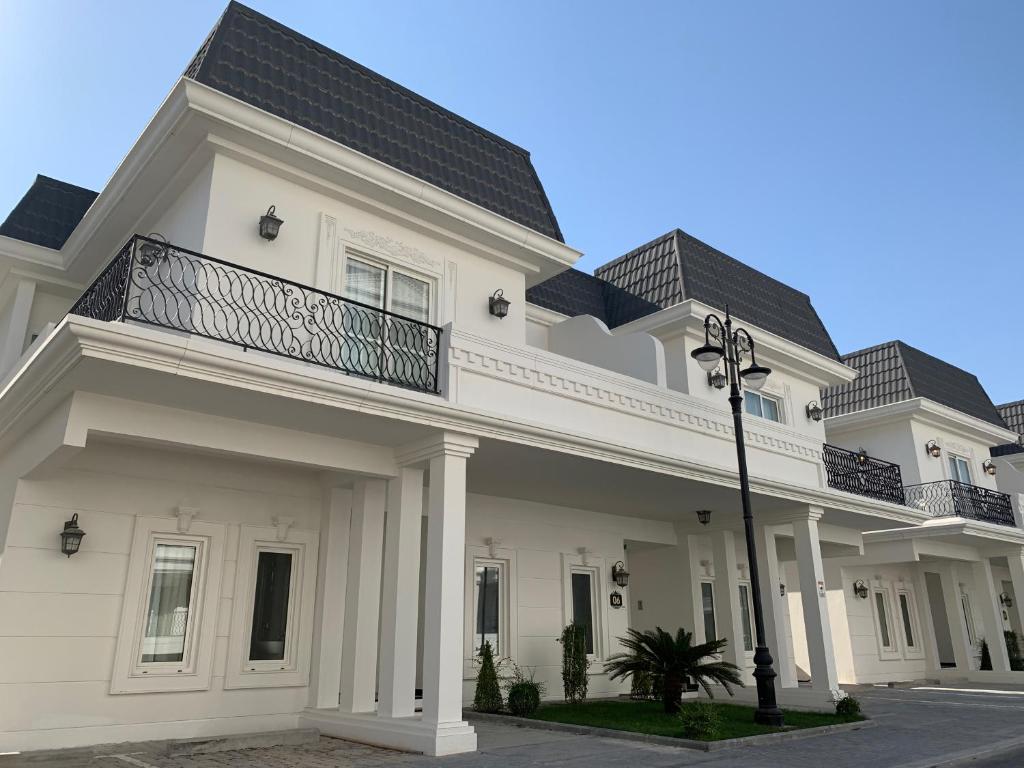Purchasing a compound villa in Qatar is a desirable investment for many, particularly for expatriates and locals looking for spacious living environments with premium amenities. However, buying a villa outright can be financially challenging, and many investors turn to financing options to ease the process. Qatar offers a variety of financing solutions, including conventional bank loans, Islamic finance, and special programs tailored to expatriates and locals. Understanding the available financing options can help buyers make informed decisions and secure the best terms for their investment.
This article explores the key financing options for purchasing compound villas in Qatar, covering conventional mortgages, Islamic financing, government-backed schemes, and other relevant aspects.
1. Conventional Home Loans
Overview of Conventional Mortgages
Conventional home loans remain one of the most common financing methods for buying compound villas in Qatar. These loans are provided by local and international banks operating in Qatar. They typically follow traditional lending practices, offering borrowers flexible loan terms and competitive interest rates.
Loan-to-Value Ratio (LTV): Banks in Qatar usually offer up to 70-80% LTV, meaning buyers need to cover at least 20-30% of the property value as a down payment.
Interest Rates: Conventional loans come with fixed or variable interest rates. Variable rates are adjusted according to market trends, which can impact the overall loan cost.
Loan Tenure: Banks offer tenures ranging from 10 to 25 years, giving buyers repayment flexibility.
Eligibility and Documentation
To qualify for a conventional loan, buyers must meet the bank’s eligibility criteria.
Proof of income and employment history
Credit history or credit score
Valid residency permits for expatriates
Down payment proof
2. Islamic Finance Options
Sharia-compliant Financing
For buyers seeking Islamic finance solutions, many banks in Qatar offer Sharia-compliant loans under the principles of Murabaha and Ijara. These products align with Islamic laws, prohibiting interest and instead using profit-sharing models.
Murabaha (Cost-Plus Financing): In this model, the bank buys the villa and resells it to the buyer at a marked-up price, allowing repayment over an agreed period.
Ijara (Leasing Model): The bank buys the property and leases it to the buyer, with ownership transferred to the buyer after the lease term ends.
Islamic Finance Features
No interest; instead, a pre-agreed profit rate is applied.
Tenure typically ranges between 15 to 25 years.
Suitable for buyers who prefer interest-free loans.
3. Government-Backed Financing Programs
Programs for Qatari Nationals
The Qatari government provides financial support to nationals through various housing schemes designed to promote homeownership. These initiatives offer favorable loan terms for those purchasing villas in Qatar.
Qatar Development Bank (QDB): QDB offers interest-free loans to eligible Qatari nationals to finance residential properties, including compound villas.
Special Loan Programs: Government-backed schemes may also provide subsidies or lower interest rates to encourage property purchases by locals.
Limitations
While these programs are highly beneficial for Qatari nationals, they are not available to expatriates.
4. Financing Solutions for Expatriates
Tailored Mortgage Products
Several banks in Qatar provide special financing options for expatriates. These loans are designed to meet the unique needs of non-Qatari residents and investors.
Loan Terms: Expatriate loans often have similar LTV ratios (70-80%) as loans for Qatari nationals. However, expatriates may need to present additional documentation, such as long-term employment contracts.
Repatriation of Funds: Some banks allow expatriates to link repayments to international bank accounts, ensuring ease of payment if they relocate.
Challenges for Expatriates
While financing is available, expatriates may face challenges, such as shorter loan tenures and stricter eligibility criteria compared to Qatari nationals.
5. Off-Plan Financing Options
Financing for Under-Construction Villas
Some buyers opt to purchase villas in compound developments that are still under construction. Many banks in Qatar offer off-plan financing, allowing buyers to spread payments over the construction period.
Payment Plans: Developers may offer installment plans that align with construction milestones. Banks also provide bridging loans or mortgages that take effect once the property is completed.
Benefits: Off-plan financing allows buyers to lock in favorable prices and spread out payments over several years.
6. Developer Financing Plans
Direct Payment Plans from Developers
Some real estate developers offer in-house financing or installment plans for buyers. These plans are typically more flexible than bank loans and can be customized according to the buyer’s financial situation.
No Bank Involvement: Buyers deal directly with the developer, eliminating the need for external loan approvals.
Flexible Payment Terms: Developers may offer longer payment plans with smaller installments, making it easier for buyers to manage payments.
Post-Handover Payment Plans: Some developers offer post-handover plans, allowing buyers to move into the property while continuing to make payments.
7. Factors to Consider When Choosing a Financing Option
Interest Rates vs. Profit Rates
Buyers should compare interest rates on conventional loans with profit rates on Islamic finance products to determine the most cost-effective option.
Eligibility and Approval Process
Each financing option has different eligibility criteria. Buyers should ensure they meet the required conditions to avoid delays in loan approval.
Loan Tenure and Monthly Installments
It is essential to choose a financing option with a tenure and installment plan that fits within your budget. Longer tenures reduce monthly payments but increase the total repayment amount.
8. Conclusion
Qatar offers a variety of financing options for purchasing compound villas, ranging from conventional mortgages and Islamic finance to government-backed programs and developer payment plans. Qatari nationals benefit from government support, while expatriates can explore tailored mortgage products. Off-plan financing and direct developer payment plans also provide flexibility for buyers.
When choosing the right financing option, it is crucial to consider factors such as interest or profit rates, eligibility requirements, loan tenure, and overall costs. With a thorough understanding of the available financing solutions, buyers can make informed decisions that align with their financial goals and secure a desirable compound villa in Qatar.



